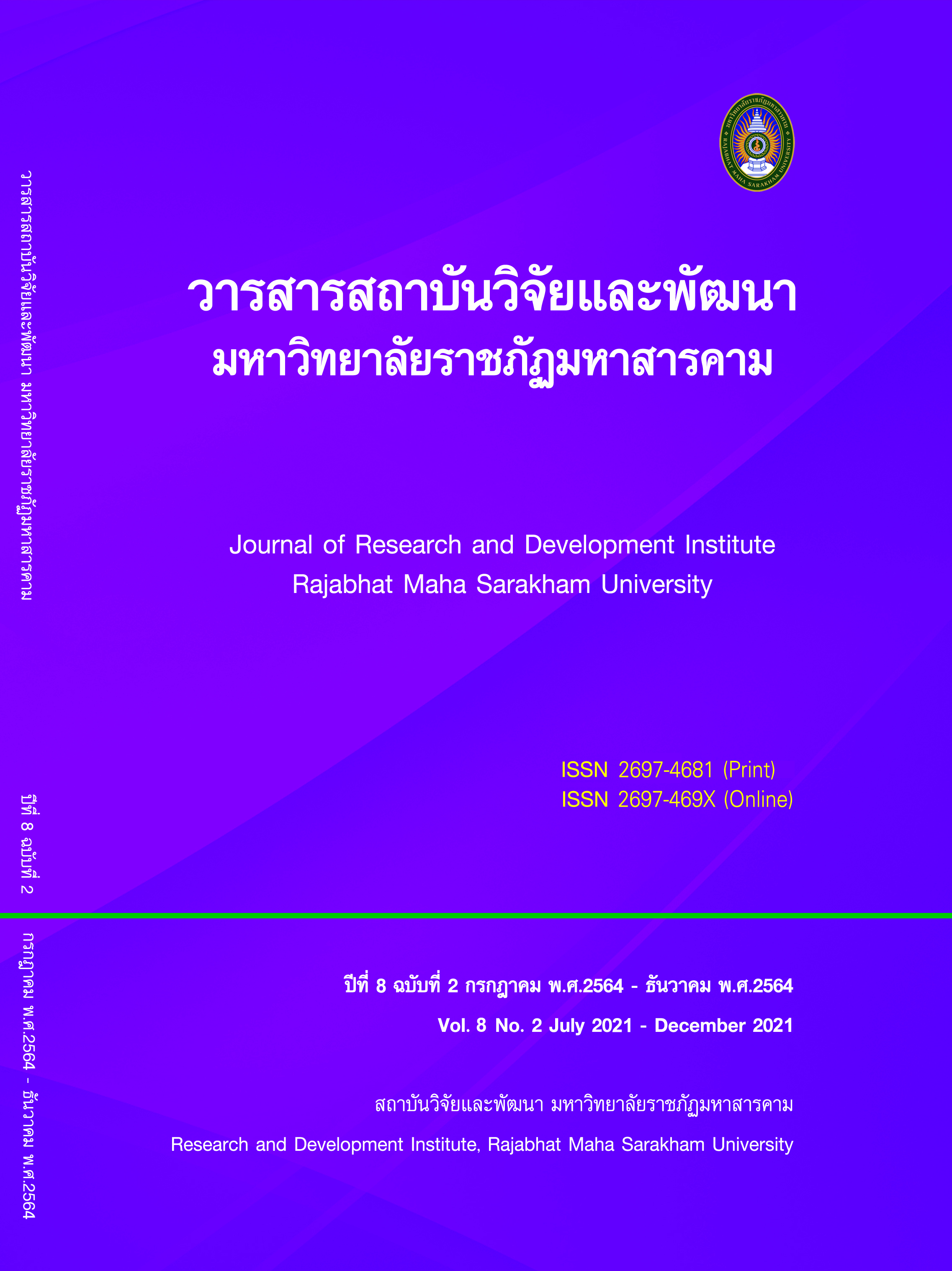Guidelines for Supervision of Education Using Information Technology Media To develop learning Social studies, religion and culture subjects
Keywords:
Educational Supervision, Using Information TechnologyAbstract
The purposes of this research were to 1) study guidelines for educational supervision using technology media Information for learning development Group learning social studies, religion, and culture. The population was 11 supervisors from offices Provincial Education Roi Et. The research instruments comprised of an open-ended questionnaire. Content analysis was used to analyze qualitative data.
Results of the study of educational supervision guidelines using information technology media to develop learning Group learning social studies, religion and culture that Step 1 Planning Supervision by studying the current condition Problems and need for supervision Supervision action planning Creation and development of media and tools for supervision and determination of supervisor and supervisor roles and duties Step 2 Supervisory conduct Carried out by adhering to the specified supervision plan as an important step was; (1) To develop knowledge, understanding, and skills, Encourage schools to develop learning management Group learning social studies, religion and culture are powerful. (2) Contest Best Practice Management Development Learning. Social studies, religion, and culture subjects Using the online system, step 3, monitoring, and evaluation of supervisory results. (3) Survey and collect operational data to develop learning management. Social studies, religion, and culture subjects Target of crawling contest Best Practice Management Development Learning. Social studies, religion and culture subjects the goal of the group stage four summary reports and conducting supervision. (4) Summarizes the comments and analysis, performance management, learning development. Social studies, religion and culture subjects Target of summary of the contest Best Practice Management Development Learning Group Learning social studies, religion and culture. Of target groups. reports on the development of learning management social studies, religion and culture subjects the Media Supervision Category 3 knowledge sharing through social media are more and Forum - Post (Web Board) as well as the public, such as the Website, Social Network.
References
Amornwiwat, S. (2018). Friendly Supervision. Bangkok: Book Promotion and Service, 2012.
Gwynn, J. Minor. (1974). Theory and Practice of Supervision. New York: Dodd & Company,
Konchuerat, W. (2008). Report on monitoring and evaluating school performance in the project of One District, One Dream School, Government Inspectorate Region 13 using a supervisory model for change. Nakhon Ratchasima: Office of Education, Roi Et Province, Nakhon Ratchasima District 1, Office of the Basic Education Commission.
Liangcheepchop, P. (2002). A study on educational supervisory performance of kindergarten schoolnetwork committees under the office of provincial primary education, educational region five. Bangkok: Chulalongkorn University.
Malithong, K. (2015). Educational technology and innovation. Bangkok: Arun Printing.
Poltue, W. (2009). Innovation of long-distance supervision using mass communication. [Online]. http://gotoknow.org/blog/region11/152819 [10 November 2018]
Russamee, A. (2008). Supervision: the process of knowledge management towards excellence. Lopburi: Lopburi Provincial Education Office, District 1.
Wanthana, P. (2018). New educational supervision. [Online]. http://gotoknow.org/blog/toon2/213347. [29 May 2018]
Wessuwan, S. (1998). A Study of Teachers' Opinion towards Academic Supervision in Elementary Schools Under the Office of the Prachinburi Primary Education Commission. Thesis M.Ed. Bangkok: Srinakharinwirot University Prasarnmit.
Downloads
Published
How to Cite
Issue
Section
License
Copyright (c) 2021 Journal of Research and Development Institute Rajabhat Maha Sarakham University

This work is licensed under a Creative Commons Attribution-NonCommercial-NoDerivatives 4.0 International License.
Articles that are published are copyrighted by the authors of the articles







